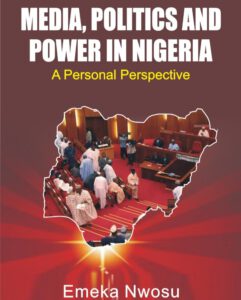By Emeka Nwosu
Little kids like us were organised into various civilian pseudo military groups where we were taught how to carry out military parades and other military drills, using our wooden guns carved out from the bamboo of raffia palms known in local parlance as afiri.
Our Commander was Chukwuemeka Nzechukwu, popularly known as Ikpo. He organised us into small formations or platoons. Our daily routine was to engage in parades around the village. Occasionally, there were marching competitions between and among various kid groups within the villages in Ohuhu. We wore helmets carved out from calabash.

The parades were usually very colourful and a delight to behold. They provided a kind of comic relief and entertainment to the war-weary villagers. Ikpo was known all over Ohuhu and environs for his ingenuity in organising these boys parades. Ikpo survived the war. He is, at the moment, the Palace Secretary of Umukabia Okaiuga Alike Autonomous community, Ohuhu, Abia State.
Within this turbulent period, my father became the Councilor of our village, which put him in the position of the political leader of the community. As the Councilor, he provided leadership and in consultation with some other elders, managed the affairs of the community.
One of his responsibilities in this regard was the nomination of young men as recruits into the Biafran Army. At that time, some leaders in the Biafran Army used to move from one community to the other to either recruit or conscript able bodied men into the Army. When they visited, they would call on the Councilor, who in consultation with some notable elders, would identify young boys who were of age for military service for enlistment in the Biafran Army.
There was an incident that is worth recalling here which I witnessed. On one occasion, when the Biafran soldiers came calling, some villagers informed them that the Councillor, my father, had a son who was of age, but being shielded from military service. The son in question was his first son, Iheanyi, who was about 16 years old.
My father felt that his son was too young to be enlisted. The young man used to hide in the ceiling of our house to avoid being conscripted. On one occasion, he crashed down from the ceiling and broke his limb. And it took some weeks of intervention by some native orthopedic healers to get him back to his feet.
WHEN BIAFRAN SOLDIERS CAME CALLING
But on this occasion that they came on the basis of intelligence they received from some informants, they confronted my father very early in the morning and asked him to produce his son, Iheanyi. My brother who had earlier been tipped off, had to jump over a fence from our house into a neighbor`s compound and took refuge there. The soldiers threatened to take my father away if he did not produce his boy.
In order to prevent her husband from being taken away, my mother started calling my brother to come out from his hiding and surrender to the soldiers. It was a very emotional scene. My brother hearkened to the call. He came out and surrendered and the soldiers took him away. As he was being led away alongside other conscripts, my mother kept wailing.
He eventually ended up as an aide to one of the Biafran officers who hailed from Enugu. When Umuahia came under severe attack and was about to fall to the superior fire power of the Federal troops, my brother was released and he was with our family members on our final escape bid from Umukabia, across Imo River to a place called Umuegwele near Umudibia in Ihitte Uboma Local Government Area of the present day Imo State where we sojourned as refugees till the end of the war in January 1970.
But our first experience as refugees was sometime in the middle of 1969 when our village was coming under direct shelling from Federal forces who were intent on taking Umuahia at all cost. The Radio Biafra had reported then that the leader of the Nigerian side, General Yakubu Gowon had promised to double the pay to the Federal troops if they captured Umuahia. We ran to Umudiawa, a neighbouring village in Ohuhu, where we took refuge in the house of one big man known as VIG. He was my father`s friend. We were there for a while.
When the Nigerian troops were repelled, we returned to our home, Umukabia. It was the final push by the Federal troops sometime towards the end of 1969 that forced the evacuation of our village. Only the weak, sick and elderly ones were left behind. We didn’t know what became of their fate when the Nigerian troops finally entered and passed through our village.
But before the war got to our area, our community school, the Central School, Umukabia, was a beehive of activities. It was a refugee camp, housing mainly refugees from Yenagoa and Ogoni land in present day Bayelsa and Rivers States, respectively. Among the refugees was a traditional ruler, the Amanyanabo of Yenagoa, who came with members of his royal family. We understood that the traditional ruler was a friend to Chief Bob Ogbuagu, an illustrious son of Umukabia who was in charge of the Biafran Food Directorate during the war. He facilitated the accommodation of the traditional ruler and his people in the school compound. The traditional ruler came with a big car which was later abandoned at the school. The carcass of that car remained on the school pitch several years after the war, and served as a reminder of the tragic years of the Nigeria-Biafra conflict.
(Excerpt from Dr. Emeka Nwosu’s soon to be presented new book, ‘Media, Politics, and Power in Nigeria: A Personal Perspective’).
• Dr. Nwosu, a veteran journalist, speechwriter and reputation manager, holds a doctorate degree in Political Economy and Development Studies.